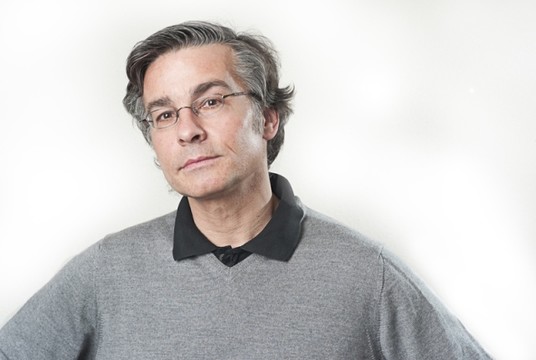
Can you first tell us about yourself and your career path ?
I am from Lausanne and it is in this city that I studied sociology and literature in the 80’s. I already had a connection with Neuchâtel, since I studied ethnology there during one year. My interests, during my studies, were mainly focused on philosophy and literature. However, these subjects were not very developed at this time and I felt the need to study and learn more. That is how I ended up specialising myself in sociology. I would add about this reorientation that I may belong to the last generation which the choice of social sciences correspond with a certain part of critical commitment.
By vocation, but also by good coincidence, I was lucky to quickly become a researcher at the Ecole Polytechnique Fédérale de Lausanne (EPFL), in the urban sociology laboratory. Furthermore, it is in this scientific centre which studies the tendency of the city that I began to be interested in sport sociology. More precisely, I began studying sport sociology as I became more interested myself in sports such as roller skating and skateboarding, and the way that the authorities of the city manage these new activities.
Some interests became more important and thus resulted in a concrete accomplishment. First, I wanted to better connect all of the people who had the same interests in Switzerland and created a research committee which is now recognised and integrated in the Swiss Sociology Society. Second, I finished my doctorate which I presented at the EPFL. Third, as a result of the two first accomplishments, I began to be “visible”, in a field were the density of the researchers was still low. Therefore, I was invited to join the CIES in 1996 to be responsible of the Sociology Research Centre.
Finally, it is in the city of Neuchâtel that I have my professional life, with my research activity at the CIES and at the Faculty of Literature and Human Sciences of the University of Neuchâtel where I am an associated professor.
What links do you have with the sport world ?
Compared with the majority of the sport sociologist, particularly my French colleagues, I am not a sportsman and I don’t have an experience of intensive sports activity. In other words, I don’t have a feeling or a link which could influence my work. However, I think that sport is a good reflection of the contemporary world and thus can be used for studying the dynamics of our society. I am talking about the phenomenon of violence, the relation between men and women, etc.
Who is your favourite sportsman and why ?
I would like to rephrase the question in a past tense. As the affection that we have for sportsman can change throughout the time.
To answer your question, I would say that in my childhood I had an idol, a goal keeper who was called Mario Prosperi and who played in the Swiss football team as well as the Lugano team in the 70’s. He was discreet but had something that I really liked. I also liked different champions such as the Italian sprinter Pietro Mennea, who ran the 200m like he was stuck to the track. There was also the American cyclist Greg Lemon and many skiers. I especially liked a group of Canadian skiers in the 80’s which was known as the “Crazy Canuks”.
What are you special areas of expertise?
If we exclude the topics of doping and the violence of supporters, I would say that I am especially interested in the appearance of the sportsman nowadays. That is to say “what does being a sportsman mean today?”, in a world where the great institutions and big structures have lost their importance. It is even more interesting when we know that over the past twenty years, increasing numbers of society do not practice their sport traditionally in a club, and that these people do not identify themselves in the objectives of competition and performance. We can also see that the sports activities come from other preoccupations such as health, personal identity, etc.
To conclude, I can say that I work on women sports activities, with a focus on those who are in a sport which is in principle a male sport, especially football.
What are the long-term aims of your research area within the CIES?
I would like to remind you that CIES, in a short space of time and in a field where the importance of sport sociology is still low, has always had a high level of scientific awareness. In this context, and considering sociology in general, I would say that the work of my colleagues and I has enabled us to create collaborations with our foreign colleagues, which is a great result of our efforts. In other words, we collaborate and we share with a considerable number of foreign researchers, mainly French speaking as for me. This rise to the great forums of sport sociology is for me, a real satisfaction, as we began from nothing. I am also glad to see that we are working in a national academic domain where the scientific legitimacy of sport is still unstable.
To conclude, the objective is to preserve the durability of CIES as an institution of reference, which means, in the field of research, by creating knowledge but also by adopting a rigorous policy of publication which is accessible to the scientific community and the sports world. I am still thinking that it is important that the CIES and its researchers have to reinforce the collaborations with the University of Neuchâtel through all kinds of research activities, experimentations and especially through teaching activities and other interdisciplinary projects.
This website uses cookies – limited to technical and analytical cookies – in order to allow your browsing and enhance your experience.
For more information, please see our cookie policy and our privacy notice.